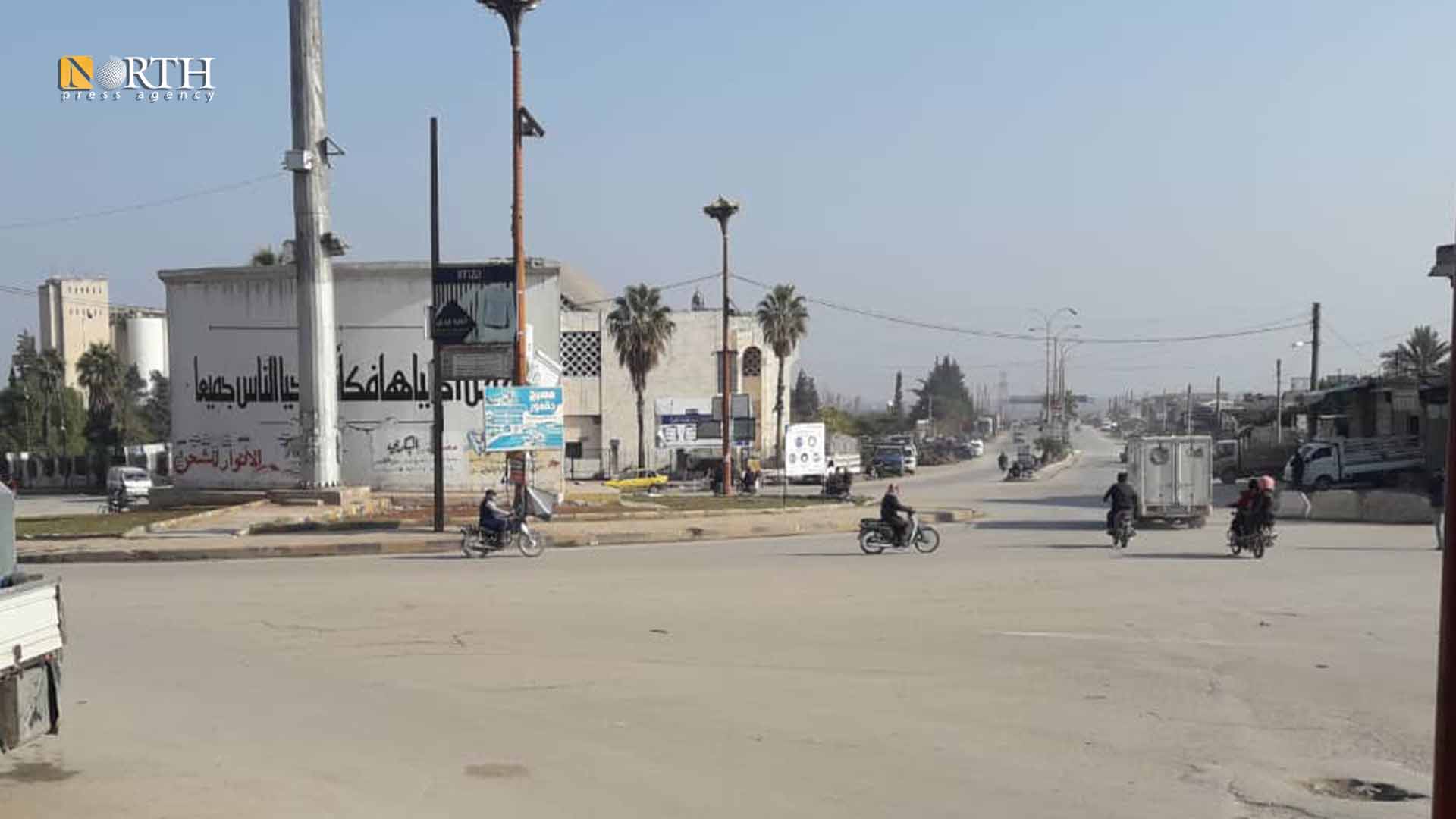IDLIB, Syria (North Press) – In June, 28-year-old Ahmed al-Muhammad (a pseudonym), an IDP in Syria’s Atma border camps, spent his wedding night in a prison of the Salvation Government, the political wing of Hayat Tahrir al-Sham (HTS, formerly al-Nusra Front).
A security patrol arrested al-Muhammad for playing music, which is considered haram (forbidden in Islam), during the wedding.
Through their security apparatuses, the HTS is cracking down on residents by imposing their decisions, philosophies, and religious beliefs on them, as their members interfere in the minutiae of the lives of the residents in a manner not dissimilar to the Islamic State (ISIS).
The young man was forced to pay $100 for his release on the next day, which al-Muhammad considers theft.
Meanwhile, the HTS prevents the shaving of beards and certain haircuts; the penalty for these “crimes” may reach imprisonment, closure of the salon, or having one’s hair shaved completely.
HTS militants will also often chase down those who smoke cigarettes and hookahs at game halls, restaurants, and public places, in addition to forcing women and girls to wear the veil and long cloaks. Moreover, they separate males and females in all grades of schools, institutions, and universities.
Stealing and looting
In mid-2018, the US listed HTS, led by Abu Muhammad al-Jolani, and every faction linked to it as a terrorist organization.
In March 2020, dozens of women demonstrated against HTS in the town of al-Saharah, in Aleppo’s western countryside, demanding the release of their detained relatives from HTS prisons.
“HTS security apparatuses dispersed the demonstration using violence and opened fire on demonstrators,” a field source told North Press at the time.
In late 2020, 23-year-old IDP in Idlib Sa’eed al-Eido (a pseudonym) spent three days in an HTS prison over his haircut. “They were the hardest days I have ever witnessed,” he said.
Al-Eido, who was arrested by a security patrol belonging to the hizba (Islamic moral police affiliated with HTS), was exposed to psychological and physical abuse including the shaving of his head and nine hours of solitary confinement.
In exchange for his release, after the judge charged him with having a forbidden haircut and roaming in places where women exist, he was forced to sign a written undertaking.
Meanwhile, Ziyad Sheikho (a pseudonym), a resident of the city of Sarmada, believes that the decisions released by HTS are to “steal from residents through forcing detainees to pay money in turn for their release.”
Sheikho called for demonstrations “to deter the Salvation Government from restricting residents.”
No cyber intermingling
Recently, Idlib University, currently administrated by the Salvation Government, issued a decision stipulating a ban on forming mixed-gender groups on social media websites.
“It is strictly prohibited, for whatever reason, to create or form mixed male-female groups on social media sites such as Facebook, WhatsApp, Telegram, and other communication apps,” the decision said.
According to the decision, groups of female students will be separated from males under the supervision of and approval of the Student Union at the University and the Presidency of the University, while violators will be held accountable legally in accordance with the laws and regulations in force.
However, the decision sparked sarcasm and criticism among students, who believe that this decision is useless, while others see it as a restriction to their freedom in criticizing and shedding light on their education difficulties.
“Students are witnessing miserable education conditions as a result of imposed fees that burden them, let alone the complexities of housing and transportation and the exploitation that the students suffer from in order to reach their universities,” university students Sohayb Dahnon (a pseudonym) said.
Idlib Unviersity’s fees are between $50 and $250 per semester according to specialization.
The university contracted with transportation vehicles to serve only some students, as they opened a dorm room only for females, according to the university student.
Dahnon believes that these decisions are of no benefit, but rather restrict students even more.

